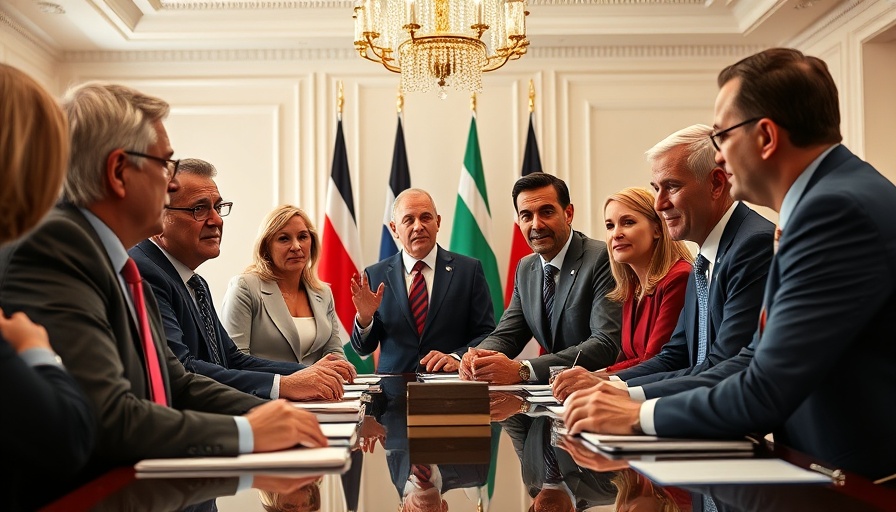
Gilbert Chagoury Takes Charge: What It Means for Lagos' Economic Future
Nigerian President Bola Ahmed Tinubu has chosen Lebanese-Nigerian businessman Gilbert Chagoury to oversee a significant renovation project at the Lagos ports. This collaboration promises to be a pivotal step for infrastructure development in Nigeria’s commercial capital. As the port activities surge back after COVID-19, boosting economic growth could pivotally impact the fragility and resilience of Nigeria's economy.
The Context of the Renovation: A Strategic Move for Investment
The decision to award the contract to ITB Nigeria, a company owned by Chagoury, isn't without its controversies. It highlights the increasingly important role of public-private partnerships in Nigeria’s infrastructure landscape. Chagoury, already known for substantial investments in land reclamation and construction, sees this project as a continuation of his engaging story with the Nigerian market. Critics, however, raise concerns regarding transparency, governance, and how such partnerships may affect smaller businesses.
Foreign Investment: The Tide is Changing
With this new twist, Lagos ports are experiencing renewed interest from foreign investors, notably from Emirati firms like DP World. This resurgence of investment is a vital sign of recovery amidst economic strain, emphasizing a trend towards stakeholder engagement that can support Lagos in its quest to reclaim its status as a leading economic hub in Africa.
A Balancing Act: Preserving Local Businesses Amidst Expansion
While larger ventures promise massive economic potential, concerns over the fate of numerous small businesses have been raised. The planned demolitions to accommodate infrastructural growth threaten jobs and livelihood, particularly along the beachfront areas that have drawn considerable tourism and patronage. This predicament raises crucial discussions about striking a balance between economic growth and local business preservation.
Public Sentiment and Political Implications
The relationship between Tinubu and Chagoury has sparked debates about favoritism and the integrity of governance. Former Vice President Atiku Abubakar criticizes the secretive nature of the deal, pushing for greater transparency and accountability in how these lucrative projects are handled. As citizens observe their leaders making decisions that could substantially impact their daily lives, calls for improved governance resonate louder than ever.
The Future of Lagos Ports: Implications for Regional Trade
As Nigeria progresses into a more connected future, the implications of the Lagos port renovations extend beyond just local economies. They represent an opportunity for regional trade enhancement within the African Continental Free Trade Area (AfCFTA). Effective port operations can serve as pivotal gateways, promoting industrialization and aiding in continental dialogue on trade relations.
What Lies Ahead: Economical Realities and Opportunities
The complexities surrounding the remodeling of Lagos ports underscore broader themes of governance, corruption, and economic ambitions within Nigeria. As infrastructural enhancements unfold, the project could either serve as a case study for successful governance or a cautionary tale of mismanaged resources. Its trajectory will depend significantly on transparency, stakeholder engagement, and the commitment to protecting local interests amidst the winds of change.
 Add Row
Add Row  Add
Add 




Write A Comment